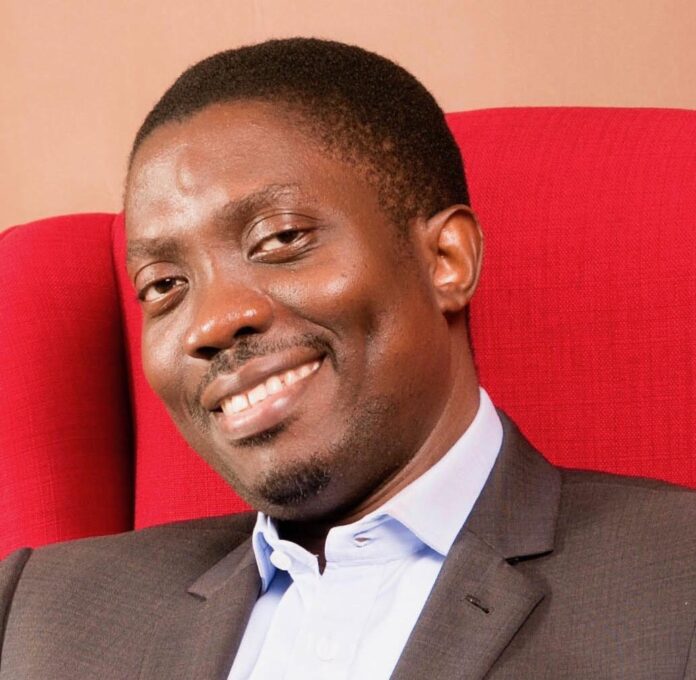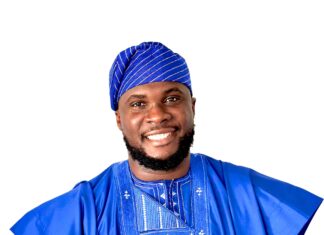Nigeria’s playing politicians implies that our politicians play politics in the same way one takes part in a fun related activity or game for which the desired or expected results are for the players’ personal glory or pleasure.
By Napoleon Esemudje
The insight came to me first in 2009, in the disorderedly wake of the Ekiti election rerun fiasco. Then, a visibly agitated colleague, in a moment of exasperation, blurted loudly; “we don’t practice politics in Nigeria. We just play politics!” Having long assumed a studious curiosity on Nigeria’s long running political melodrama, I was at once bemused by his rather abrupt deduction and intrigued by what I took to be the hypothesis of a traumatized citizen.
The premise of my unsolicited diagnosis, I admit, is the hair splitting definition and interpretation of “playing” as against “practicing” politics. I suppose my friend’s frustration (malaise may be a more fitting description given the distressing impact on his overall wellbeing), is symptomatic of a deeper national affliction, arising from the unrelenting antics and traumatic blows from our political class.
The senior members of this class, the typical Nigerian politician, is a special breed (often in the mode of Chief Nanga, the fictional villain in Chinua Achebe’s satire “A Man of The People”) that was seeded in the First Republic and has (despite the sanitizing efforts of a self-styled evil genius) resiliently metastasized through to the Fourth Republic; remaining to this day, the proverbial sword of Damocles hanging over this country.
But beyond this crude and invariably unsatisfying attempt at psychoanalyzing a country, it is worth exploring the differences between playing and practicing politics, if only for a basic understanding of the bewildering concept of Nigerian politics.
It’s all fun and games
I suspect my friend would argue that our politicians play politics in the same way one takes part in a fun related activity or game for which the desired or expected results are for the players’ personal glory or pleasure, like an entertaining evening of street football or a soiree of cards amongst friends. Obviously, the outcomes of such fun and games played by a few individuals ordinarily do not and should not determine the fate of hundreds of millions of citizens. And this by the way should not be misconstrued to include those that some of us may regard, with unbridled passion, as being more than just a game.
Competitive club football or World Cup tournaments, where the outcomes at stake are significant financial returns or national honour and prestige are duly protected under this caveat.
But I digress. For as it may have turned out, my friend, after yet another bitter taste of unsavoury elections, is convinced that our politicians do not practice politics as would be expected of true statesmen (and yes, they’re mostly men. Although in this very patriarchal society, the few female politicians it may appear, have taken too literally, the biblical notion of Adam’s helper, and are content in their roles as collaborators).
It is undeniably, also a bothersome play on words when too many of our excellences and honourables conduct themselves in ways that do not promote personal honour or the ethical values that underpin good society and national pride. Indeed, if you pull aside the bizarre embellishment of meaningless political sloganeering, many with no rhyme or reason, it is hard to find a politician in this country covered in any clothes similar to the fabric of a patriotic flag. But this is not a game. There is too much at stake. The lives of hundreds of millions of citizens, including of generations yet unborn, hangs in the balance.
Politics of base instincts
Still, in a country with a population so large and diverse, what is it about our political system that makes our breed of politicians (whose numbers surely do not exceed the tens of thousands) so enduring and dominant? Could it be that there are rational reasons for our local variety of political deviancy and we have merely painted politicians in broad-brush strokes? Could we perhaps, draw from the deep well of knowledge of experts for whom the study of politics was a profession and calling?
I am inclined to concede the value of the latter with particular emphasis on contextual relevance. In this regard, we could adopt the definition of politics that lends itself to the Nigerian situation – that of the legendary political theorist, Harold Laski. His seemingly primeval definition of politics as “who gets what, when and how” aligns it seems, with the underlying philosophy (in its purest and primitive form) of the “amala” politics pugnaciously espoused by the late Adedibu; once described by his disciples, with deference fit for the conqueror of John Pepper Clark’s seven hills, as the “garrison commander” of Ibadan politics.
Indeed, proponents of amala politics would only be too happy to chorus Laski’s definition as a conceptual recognition of their strain of politics, which at its base is devoid of any pretentious affiliation to some elegant, if higher purpose, ideological essence. If anything, the closest our amala politicians or “stomach infrastructure” (the latter-day characterisation) advocates have come to any ideological leaning is their predisposition to the baser forms of compulsive exploitation, implacable greed, dishonorable peccadilloes and the vampiric feats of political longevity and self-preservation.
But for a significant number of vulnerable, poorly educated and largely impoverished electorate desperate to survive the here and now, (the future after all is for the gods to decide), the offer of amala or stomach infrastructure seems a fair Faust bargain. Of course, it also helps that many of our electorate have long been fed and conditioned on the stimulants of ethno-religious partisanship. So yes, this is the setting and the playground over which our special breed of politicians bestrides like ancient colossuses.
Never mind that outside the borders of this country and continent, they are no more visible than shadows at night. But for decades they hav
e operated here with impunity and their operations have left behind a stunted country with a democracy all but in name only.
In search of good values
From this perspective therefore, my friend’s outburst is understandable and only reveals the smoke of his simmering discontent with a very playful political class and the heavy costs of their gamesmanship. Regretfully, I’m also inclined to believe that the dearth of a higher purpose ideology is not simply lacking in our politicians but also missing in most of us, including, I dare admit, my very concerned friend.
READ ALSO: The Future of Nigeria (1)
It is this lack of a moral compass that may explain in part, the mutation of erstwhile champions of civil justice and national rebirth into the arrowheads and bulwarks of the status quo. Their claim, of being in the system to initiate an invasive procedure for change from within, is often so hollow as to be more of tainted sutures and pus seeping lesions of a distressing variety for yesterday’s good men and women. It does make one wonder. Are we all susceptible to the sweet poison that flows through the shadowy corridors of power and somehow turns yesterday’s heroes into villains with muzzled consciences? Are we then all capable of the great evils of intemperate greed and hypocrisy?
Perhaps, it is worth recalling the thoughts of Martin Luther King Jr. a man who should know, about the existence of two selves in each of us – a higher self and a lower self. Mr. King recognised the existential struggle of keeping the higher self in control at all times because once the lower self takes over; even the best of us fails. And for all my earnest contemplations, it’s clear to me that, until we win this civil war of the mind with the arsenals of principled values and ideologies that supports the public good, we cannot improve our political fortunes.
A New Year wish
So there it is. It does appear that we have got lemons for politicians and a conditioned electorate in survival mode; the latter possibly a fertile farm for future lemons processed through assembly line elections. How do we make lemonade out of this sour mix? Who will save us from ourselves? Now, hand on chin, I should admit that finding cheery answers to these questions is very much like nailing jelly to a wall. But this is a new year and an election year for that matter.
So like bleary-eyed hopers crossing over from 2022, I am inclined to suspend twilight doubts and answer with a string of New Year wishes for a different kind of politician. Not necessarily a politician that is so virtuous as to be termed a saint. No, that would be like finding a pin in our political haystack and true saints in any case, are long dead. Neither do we seek angels that don’t live amongst us nor whom we cannot see. And we are certainly not asking for a messiah, as alluring as that prospect may be.
We simply need a politician who not only understands the system but has sufficient moral authority drawn from deep-seated values and a sense of personal honour to put the country before self.
One that is able to feel shame and repulsion at the grandiosity of his or her special privileges as well as pain and empathy for the plight of hapless citizens.
One who will not play silly political games with the lives of citizens but has the right vision to see beyond the now and the ephemeral pleasures of power and wealth.
One who knows that they will not be remembered for their possessions, be it the size of their bank accounts, their fleet of jets, the length of their motorcades or the splendor of their palaces.
One compelled by a sense of history, to rekindle trust and faith in our floundering fatherland amongst scarpering citizens and a sense of national pride and esteem that ultimately uplifts the African continent and the African diaspora.
One committed to leaving behind a transformational legacy that would stand as a beacon for others to follow and a milestone for posterity.
Such that when the country’s future generations look back, they will say that in this moment, under the able steer of this politician, this drifting vessel of a country, finally changed course and headed full steam ahead to the port of its long promised greatness.
HAPPY NEW YEAR!
- Napoleon Esemudje, a Chevening Scholar, poet, story teller, playwright, banker, management and human resources aficionado, wrote in from Lagos.













